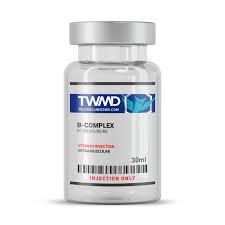Vitamin B12 1000 mg Supplement
Ever come across a Vitamin B12 1000 mg supplement and wondered if a higher dose equals more benefits? While B12 is an essential nutrient, understanding the right dosage is crucial. This blog will shed light on B12. Futhermore explore the concept of high-dose supplements, and guide you towards making informed choices about your B12 needs.
Visit Official Website: TeleWellnessmd
The Power of Vitamin B12
Vitamin B12, also known as cobalamin, is a vital nutrient that plays a significant role in keeping our bodies functioning properly. Here’s a quick glimpse at its importance:
- Energy Production: B12 aids in converting food into usable energy, leaving you feeling less sluggish.
- Red Blood Cell Formation: B12 is crucial for the production of healthy red blood cells, which carry oxygen throughout your body. A deficiency can lead to anemia.
- Nervous System Function: B12 supports a healthy nervous system, promoting proper nerve function and preventing nerve damage.
Do You Need a High-Dose B12 Supplement (1000 mg)?
Here’s the key takeaway: Vitamin B12 1000 mg supplements are generally not recommended for most individuals. Let’s explore why:
- Water-Soluble Vitamin: B12 is a water-soluble vitamin. Unlike fat-soluble vitamins, your body doesn’t store excess B12. Any unused amounts are simply excreted through urine.
- Recommended Daily Allowance (RDA): The RDA for B12 varies depending on age, but for adults, it’s typically around 2.4 mcg (micrograms). Even with reduced absorption, a 1000 mcg supplement far exceeds the recommended daily needs.
- Potential Side Effects: Although rare, high-dose B12 supplements might cause side effects like headache, nausea, vomiting, or facial swelling.
Who Might Benefit from High-Dose B12 Supplements?
In some specific cases, a doctor might recommend high-dose B12 supplements:
- Diagnosed B12 Deficiency: If you have a confirmed B12 deficiency, a higher dose might be necessary to replenish B12 stores and correct the deficiency.
- Certain Medical Conditions: Individuals with specific medical conditions like pernicious anemia, which affects B12 absorption, might need high-dose supplements.
- Increased B12 Needs: Pregnant and breastfeeding women have slightly higher B12 needs, but these can typically be met through a balanced diet or lower-dose supplements.
Consult Your Doctor
Before taking any B12 supplement, especially a high-dose one, consulting your doctor is crucial. They can assess your individual needs, diagnose any deficiencies, and recommend the appropriate dosage.
Alternative Ways to Get Your B12
- Balanced Diet: Prioritize a diet rich in animal products like meat, poultry, fish, and dairy, as these are natural sources of B12.
- Fortified Foods: Some breakfast cereals, plant-based milks, and nutritional yeasts are fortified with B12, offering an option for vegetarians and vegans.
- Lower-Dose B12 Supplements: If a deficiency is unlikely, a lower-dose B12 supplement (around 100 mcg or less) might be a suitable option for general B12 support.
Remember
Vitamin B12 1000 mg supplements are not a one-size-fits-all solution. Consulting your doctor is key to determining the right B12 dosage for you. They can help you create a personalized plan to ensure you get the B12 you need to maintain optimal health.
By understanding the role of B12, the limitations of high-dose supplements, and alternative ways to meet your B12 needs, you can make informed choices to support your well-being.
